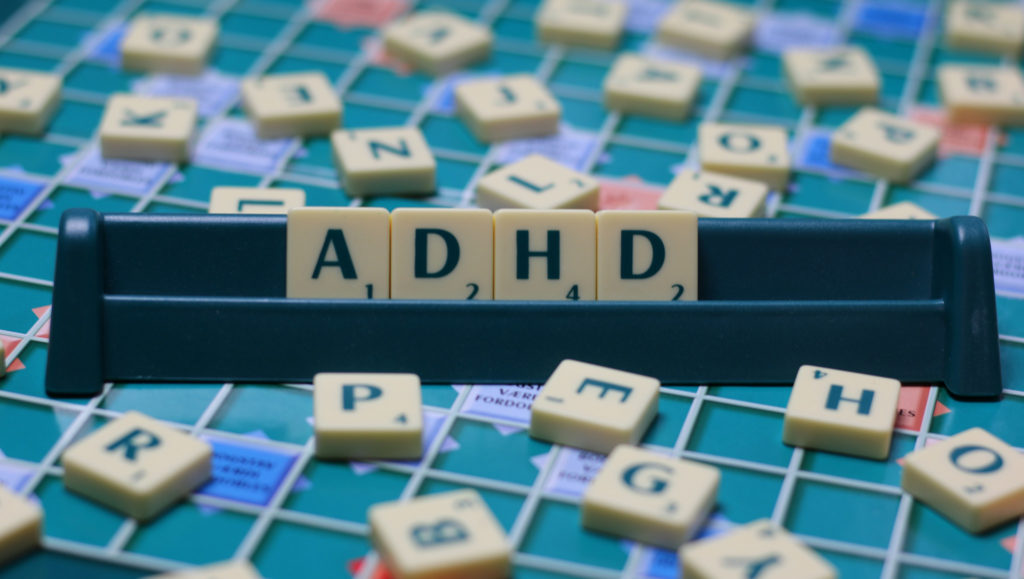Hallucinations and other psychotic symptoms have been reported after methylphenidate (Ritalin) treatment for ADHD, according to a new study published in the Scandinavian Journal of Child and Adolescent Psychiatry and Psychology. Erica Ramstad led the research at the Psychiatric Research Unit, Region Zealand, Slagelse, Denmark.

A previous FDA report exclusively focused on published, pharmaceutical-industry-sponsored trials of stimulants, which the authors note were at high risk of bias (including under-reporting of adverse effects). Even this report noted the prevalence of psychotic symptoms among children taking methylphenidate and the complete absence of these symptoms in the placebo group.
The current study consisted of two Cochrane systematic meta-analyses—one focused on randomized clinical trials (RCTs), and the other including observational studies and reports from non-placebo-controlled trials. Cochrane systematic meta-analyses are designed to include all available data, not just industry-supported trials, and add a method for rating the risk of bias.
The current analysis synthesized the data from 10 RCTs, 17 non-randomized studies, and 12 patient reports, for a total of 77,358 included patients. Most of the patients were in the non-randomized studies. Very few of the published studies on methylphenidate assessed for psychotic symptoms, so this research is based on those studies that did include this data.
Because the non-randomized studies only involve children taking the drug, there is no way to judge whether the drug caused the effect. Nonetheless, these studies can be used to estimate the prevalence of a symptom, and from these studies, the researchers found that approximately 1%-2% of children who began taking methylphenidate then experienced psychotic symptoms as a reported adverse effect of the drug.
The RCTs, on the other hand, can be used to compare children taking the drug to children who were randomly assigned to a placebo. An analysis of these studies found that children on methylphenidate were more than twice as likely (risk ratio 2.07) to develop psychotic symptoms than children on placebo. Although this finding did not reach statistical significance, due to the small sample size in the RCTs (statistically, it could have been due to chance), it supports the idea that the children in the non-randomized studies were more likely to experience psychotic symptoms because of the drug.
The case studies provide information about how psychotic symptoms appear for children taking methylphenidate. Hallucinations (auditory, visual, and tactile) were the most common psychotic symptom. The hallucinations happened between 1 hour and 1 day after the children received methylphenidate. In all 16 cases, stopping the drug also stopped the psychotic symptoms. In four cases, children were then put back on the drug—in half of those cases, the psychotic symptoms immediately came back as well. One patient, at 3-year follow-up, was still taking methylphenidate and had received an additional diagnosis of schizophrenia due to continuing psychotic symptoms.
Although stimulant medications (including methylphenidate and amphetamines) are considered first-line interventions for ADHD in children, researchers have raised numerous concerns about the effectiveness of these drugs and of the long-term dangers of children taking these drugs. In fact, long-term research has found that children who took stimulant medications either have the same results or worse results than children with ADHD who did not take stimulants.
A previous Cochrane review of the effectiveness of methylphenidate, led by some of the researchers from the current study, described the evidence of effectiveness as “very low quality” and stated that most of the studies were at “high risk of bias, imprecision, indirectness, heterogeneity and publication bias.” It appears, from these reports, that stimulants may slightly improve children’s behavior in the classroom, according to their teachers’ reports, but that any such finding should be taken with a grain of salt considering the high risk of bias in the included studies.
Because of the high risk of bias and methodological problems plaguing all the RCTs that studied methylphenidate, the authors of the current study reported that they could not say for certain that psychotic symptoms are an adverse effect of methylphenidate treatment. They suggest that future research needs to better assess for psychotic symptoms and include more rigorous, less-biased study design.
****
Ramstad, E., Storebø, O. J., Gerner, T., Krogh, H. B., Holmskov, M., Magnusson, F. L. . . . Simonsen, E. (2018). Hallucinations and other psychotic symptoms in response to methylphenidate in children and adolescents with attention-deficit/hyperactivity disorder: A Cochrane systematic review with meta-analysis and trial sequential analysis. Scandinavian Journal of Child and Adolescent Psychiatry and Psychology, 6(1). doi: 10.21307/sjcapp-2018-003 (Link)















“Hallucinations Reported as Side Effect of ADHD Medication.”
Don’t forget the millions and millions of people, including over a million children, who had the common adverse effects of the ADHD drugs (and antidepressants) misdiagnosed as “bipolar” in recent decades, likely due to getting “psychotic” or “manic” symptoms from both drug classes.
https://www.alternet.org/story/146659/are_prozac_and_other_psychiatric_drugs_causing_the_astonishing_rise_of_mental_illness_in_america
From the DSM: “Note: Manic-like episodes that are clearly caused by somatic antidepressant treatment (e.g., medication, electroconvulsive therapy, light therapy) should not count toward a diagnosis of Bipolar I Disorder.”
It’s most definitely not just “One patient” who “had received an additional diagnosis of schizophrenia due to continuing psychotic symptoms.” It’s likely millions and millions of people who were misdiagnosed. Probably most of the people with a “bipolar” or “schizophrenia” diagnosis, got those misdiagnoses via these iatrogenic pathways.
The DSM5 should NOT have removed that disclaimer from the bipolar definition, it should have added the ADHD drug to that disclaimer. And put the disclaimer in bold print, AND BIG CAPS. To try to end the massive iatrogenic harm being done to our society, by today’s highly delusional psychiatrists.
What’s good, however, is that means most “bipolar” and “schizophrenia” are NOT “genetic” diseases. They are iatrogenic disorders, created with the psychiatric drugs.
Here’s the proof that the “schizophrenia” treatments, all by themselves, do create both the negative and positive symptoms of “schizophrenia” as well. The negative symptoms are created via neuroleptic induced deficit syndrome, and the positive symptoms are created via antipsychotic induced anticholinergic toxidrome.
https://en.wikipedia.org/wiki/Neuroleptic-induced_deficit_syndrome
https://en.wikipedia.org/wiki/Toxidrome
Perhaps our society should end all this unneeded psychiatric harm of human beings? Because doctors creating illnesses in people by poisoning them with known toxidrome is, of course, NOT acceptable human behavior. Since intentionally poisoning people is a form of attempted murder, which is illegal.
Report comment
Hallucinations = Brain Damage?
Report comment
I was watching a lecture by Dr. Breggin, and I was wondering if it would ever be possible to produce rigorous research in psychiatry. The simple fact of giving a psychotropic to solve a problem implies a negation of the human being, of the human relationship, it implies the will to create false emotions, false behavior, the suppression of free will. This is already a breach of ethics, humanism, and of the purpose of any helping relationship.
The purpose of any helping relationship is to remove the barriers that prevent the client from developing as a complete human being, in his relationship to himself and in his relationship to others, and primarily in his relationship with the therapist. It involves empathy, congruence, attention, and as Breggin says, love; Breggin means absolute and sincere benevolence towards the client.
Since we give a psychotropic to a client in order to “improve him”, we miss this goal at the root. It is reification, and reification, from the beginning, hurts the human being.
That’s why giving psychotropic drugs to a client in order to prove that psychotropic drugs are bad (or good) is neither ethical nor humane.
It is ethical to criticize those who do this kind of research, to force them to record the bad results of their experiences, to denounce their biases, but we can not reproduce these experiences because they are inhuman. It is also impossible that this kind of research is ever rigorous, because at the base it proceeds from a malicious intention, a reification of the human being. Rigorous and honest research on psychotropic drugs would immediately reveal this malicious intent, which psychiatrists will never admit. This is why it is fundamentally impossible for psychiatric research to be scientific.
Is ethical research on weaning. If we do not have the right to hurt the clients, it is human to limit the harm that others have done.
Is ethical research on non-psychiatric, social and psychological approaches to human suffering. This research is likely to give the most brilliant results.
Report comment
A trivial study, as it’s been known for decades that stimulants can induce hallucinations. Did someone actually believe this wouldn’t be the case with Ritalin? Or did the drug companies believe Ritalin wouldn’t do so, as it isn’t an amphetamine?
Report comment
It’s on the package insert. Not new news here.
Report comment
I find myself wondering about the use of Serkov tactics when I read such research findings.
Serkov is an advisor to Putin who would fund all sorts of groups, even those who would attack Putin. The key being that he would then let this be known. It leaves people not knowing what to believe, and keeps any opposition to their power constantly confused. People become bogged down in debates about ‘facts’.
Report comment
I think amphetamines are the top choices in the US. Elsewhere, its Ritalin. Ritalin was long regarded as milder than amphetamines, good for some forms of depression, sedation from other prescribed drugs, etc., which I guess is still how doctors who aren’t based in the US view things. So…
I’m thankful for this study, to a point. On the one hand, its sorta like…”thank you, Captain Obvious, for pointing out that uppers can cause psychosis!,” but on the other hand…
at least people are asking the questions. I mean…people with credentials, of course. The next step would be to fully investigate why, suddenly, everybody has “ADD/ADHD”. My vote goes for the problems with capitalism, but…
there’s been some convincing research on beneficial impacts of supplements on “ADHD,” which…to me…still doesn’t -prove- a biological basis. Orthomolecular was getting a lot of press at one point during Szasz’s (long) career, and he compared the vitamin treatment to one USSR method, which was forced fasting. Basically, he pointed out that if the same “disease”–in that case, “Schizophrenia”–can be “treated” by stuffing people full of nutrients and also by depriving people of food for extended periods of time, then it is probably not an actual disease that is being “treated.” Valid point, I think.
Report comment
It might be, if “schizophrenia” were an entity unto itself, instead of a description of certain kinds of behavior or experiences; but alas, this isn’t so. Therapeutic fasting wasn’t discovered by a psychiatrist, but an allergist named Theron Randolph, back in the 1950’s, who presented his data on 2,000 patients at an APA conference- and was greeted by a ho hum by the psychiatric community. Psychiatric response to vitamin therapy has been to have articles in psychiatric journals warning how dangerous this was, particularly B3 therapy (I must have a liver the size of a basketball from taking B3 for 40+ years, that I don’t notice).
Report comment
I saw this on the BBC and thought you should see it:
The drug that brought me down to Earth – http://www.bbc.co.uk/news/disability-45084564
Surely you must be wrong!
Report comment
I always assumed that the hallucinations were from sleep deprivation.
Report comment